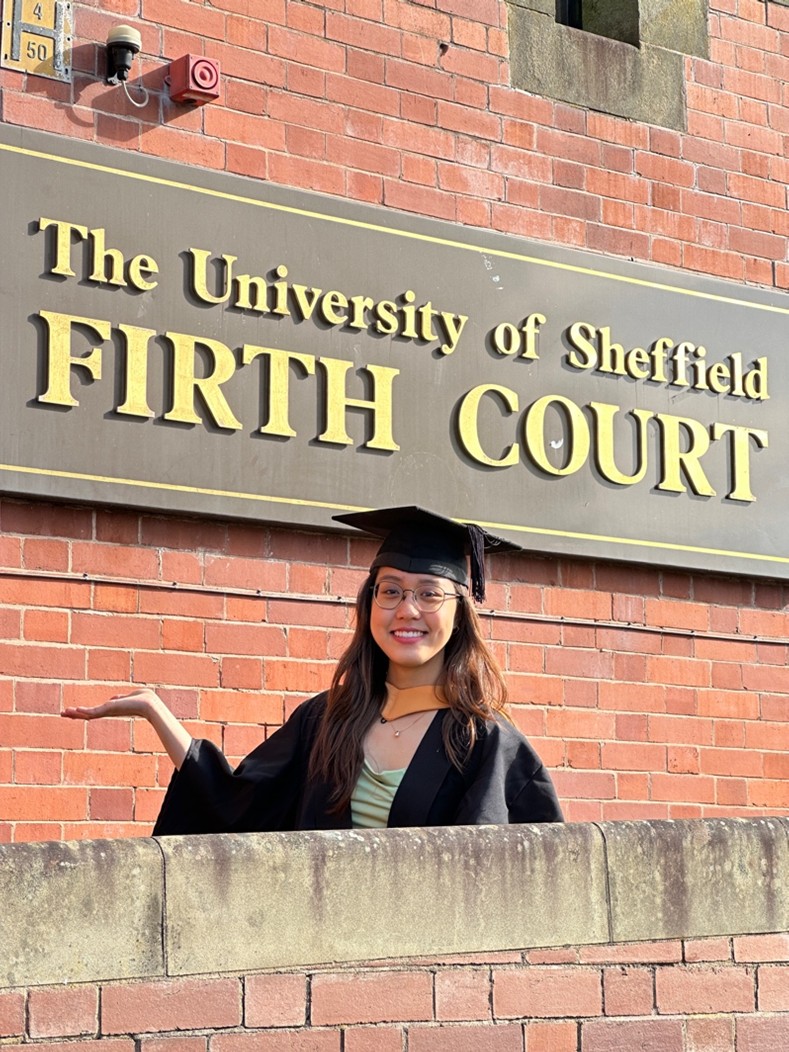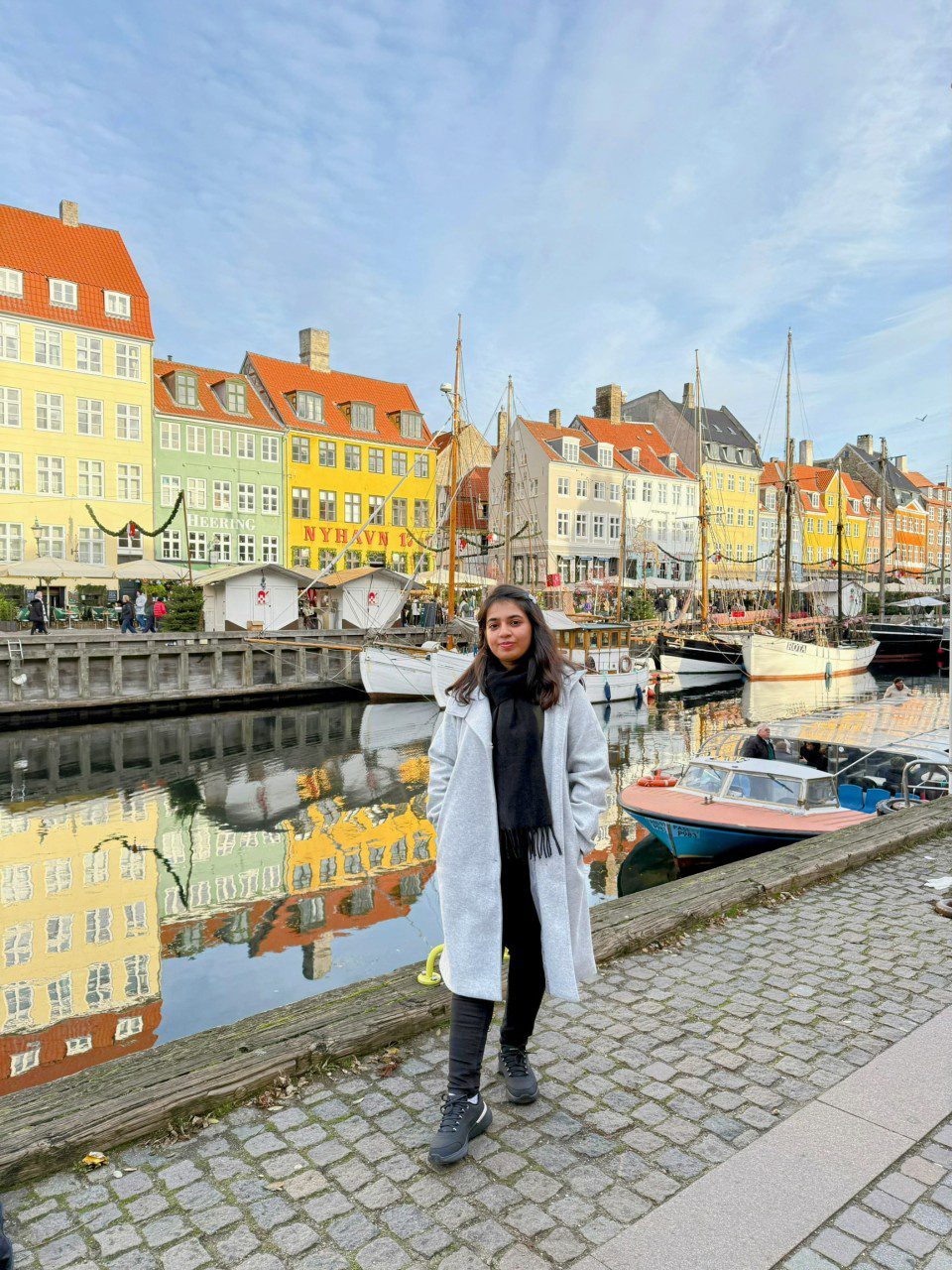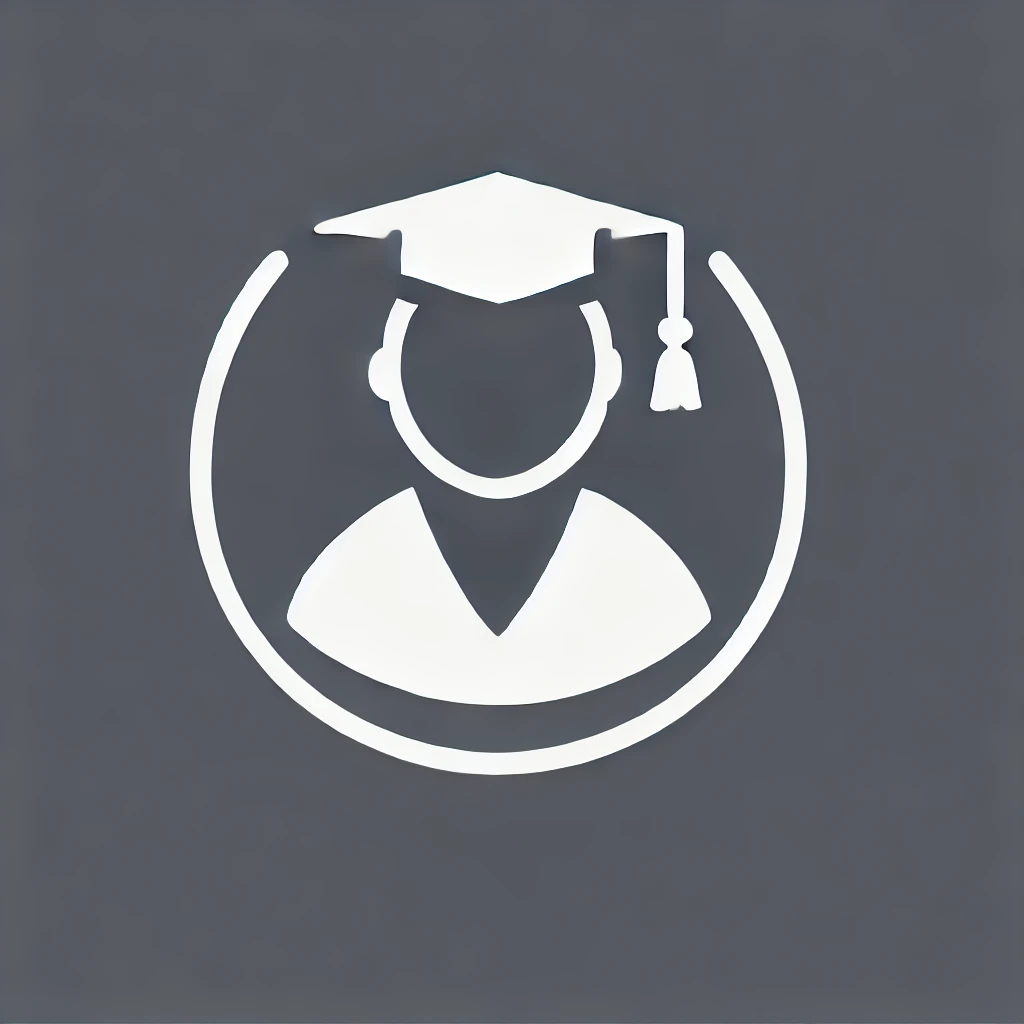MRC DiMeN DTP Scholar, Yue Chern from Malaysia, Pursues a PhD in Biomedical Science at the University of York, United Kingdom
University: University of York, United Kingdom
Degree: PhD in Biomedical Science (MRC DiMeN DTP Programme) – Focus on extracellular vesicles as biological vectors for drug delivery
Previous Education: BSc in Biomedical Science – University of Sheffield (Sheffield International Undergraduate Merit Scholarship recipient)
Scholarship: MRC DiMeN Doctoral Training Partnership – Fully funded (tuition, stipend, and bench fees)
Other Offered Scholarships (if any): Sheffield International Undergraduate Merit Scholarship – 50% tuition waiver (awarded annually, maintained throughout degree)
Social Media
LinkedIn: linkedin.com/in/yue-chern-lim/

The Journey
Hello! My name is Yue Chern Lim, and I am from Johor, Malaysia. I completed my undergraduate degree in Biomedical Science at the University of Sheffield, United Kingdom, in 2024. After a gap year, I began my PhD at the University of York.
Biology has fascinated me since high school, and I chose to pursue biomedical sciences with the aim of contributing to healthcare and advancing science. My undergraduate degree introduced me to diverse areas, including molecular biology, anatomy, physiology, and genetics. Over time, I discovered a strong interest in regenerative medicine and novel therapeutics. This naturally developed into my ambition to pursue doctoral research. My PhD project now focuses on exploring the potential of extracellular vesicles as novel biological vectors for drug delivery.
Scholarship Details
I received the Sheffield International Undergraduate Merit Scholarship during my undergraduate degree, which covered 50% of my tuition fee each year, excluding my placement year. Currently, my doctoral studies are fully funded by the MRC DiMeN DTP programme, which supports my tuition fees at the international rate and provides a tax-free stipend.
Educational Background and Application
I completed my high school education at Foon Yew High School, a Chinese independent school in Malaysia, where I took the Sijil Pelajaran Malaysia (SPM) and Unified Examination Certificate (UEC). These are equivalent to O-level and A-level qualifications. I achieved eight A1 grades in the UEC and earned a B for English in the SPM 1119 paper. I was accepted into all UK universities I applied to, without taking additional standardised exams.
To secure the Sheffield International Undergraduate Merit Scholarship, I submitted an application statement highlighting my academic achievements, extracurricular activities, and long-term ambitions. I became one of only 50 recipients and maintained above 60% throughout my degree to retain the award.
During my degree, I gained research experience through a six-month internship at Sheffield Hallam University and a year-long placement at the Francis Crick Institute in London. Early in my final year, I applied to four fully funded PhD programmes. These applications were unsuccessful. Looking back, I realised that I had chosen projects mainly based on the reputation of the institution and the stipend. My answers were vague, generic, and lacked focus. Furthermore, the deadlines fell before my final-year project, leaving me with little evidence to support my readiness for a PhD.
Taking this as a learning experience, I spent the following year improving my approach. I sought feedback from mentors, reached out to supervisors, and carefully tailored each application to align with my research interests. I also broadened my search on FindAPhD.com and applied to 10 programmes that matched my passion for regenerative medicine and therapeutics. Although the fear of failure was always present, I found that constant refinement after each rejection kept me moving forward. I began to appreciate how important it is to choose the right supervisor and project. Eventually, I secured a place at the University of York. The MRC DiMeN DTP programme now covers my tuition fees, bench fees, and stipend, while I fund my visa application and Immigration Health Surcharge. I have recently started my PhD journey and feel optimistic about the path ahead.
How Did You Prepare to Apply to the Sheffield International Undergraduate Merit Scholarship?
I tracked all opportunities using an Excel sheet to monitor openings, deadlines, and progress. For my undergraduate scholarship, I revisited key achievements and events to strengthen my statement. I also asked a relative to proofread my writing since English is my second language.
Applying for a PhD scholarship required deeper preparation. I researched potential supervisors, studied their publications, and tailored my statements with relevant keywords to demonstrate fit. For the interview stage, I prepared three stories based on past experiences. These became the foundation of my answers to questions on transferable skills.
What Do You Think Made Your Application Stand Out?
Specificity was key. I aligned my application with the programme’s research themes and highlighted how my interests connected to their priorities. Authenticity and passion also made a difference. For example, I described how my lecturer’s startup in hearing-loss therapy inspired me to contribute to regenerative medicine.
During interviews, I paid close attention to body language. I maintained eye contact, smiled, and stayed relaxed while remaining professional. I also made sure to ask questions, even on small matters, to show genuine curiosity and proactivity.
What Would You Have Done Differently if You Were Going Through the Process Again?
I would dedicate more time to reading research articles in the relevant field. I would also be more disciplined with my schedule to avoid procrastination and ensure a stronger narrative in my applications.
What Advice Would You Give Those Looking to Apply for a Similar Scholarship?
Be proactive. Look for opportunities through internships, volunteering, societies, or personal projects. Institutions value transferable skills as much as academic grades. For example, I secured my internship without prior knowledge of clinical studies, and the experience later helped me stand out when applying for placements. This eventually became a stepping stone to my PhD.
Confidence is equally important. Be proud of your strengths, acknowledge your achievements without arrogance, and embrace your weaknesses honestly. Above all, learn how to showcase your experiences effectively both in writing and in person.
Want to submit your
scholarship journey?
Submit Your Story Here!
More Scholarship Recipients

I am Sabeen Imran, coming from Pakistan, where I did my Bachelor's in Environmental Sciences from the University of Veterina .... Read more

My name is Ivena Nathania Victor; you can call me Ivena. I have a Master’s of Science and Master’s of Arts degree in Cli .... Read more

My name is Aisha Lareb, and I am from Sindh, Pakistan. Growing up, I witnessed the challenges faced by women in my community .... Read more

Leave A Comment